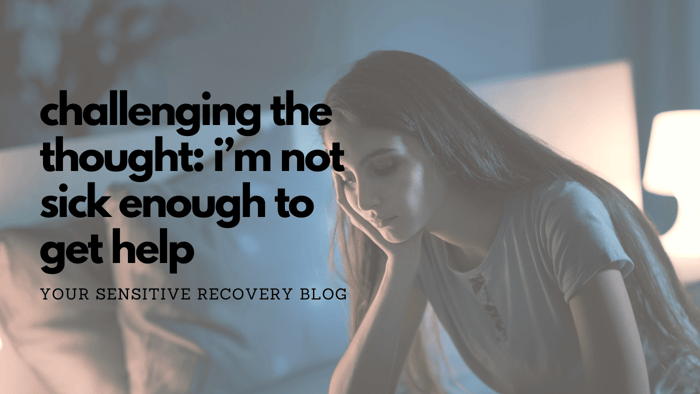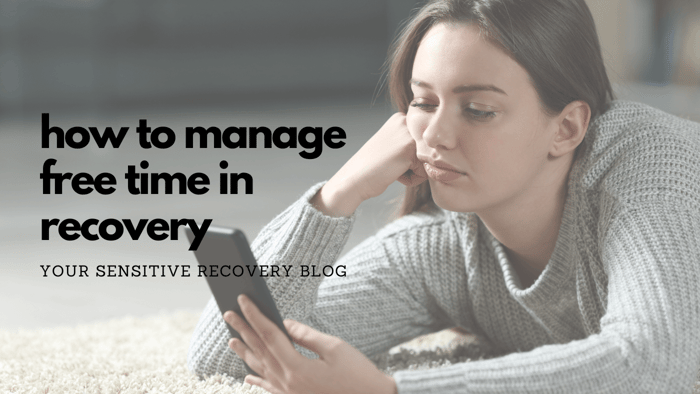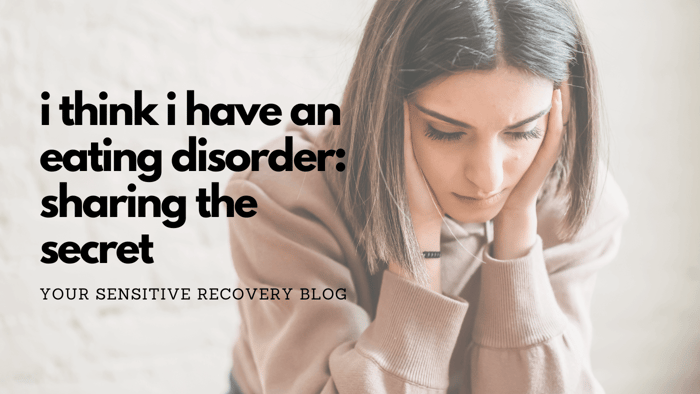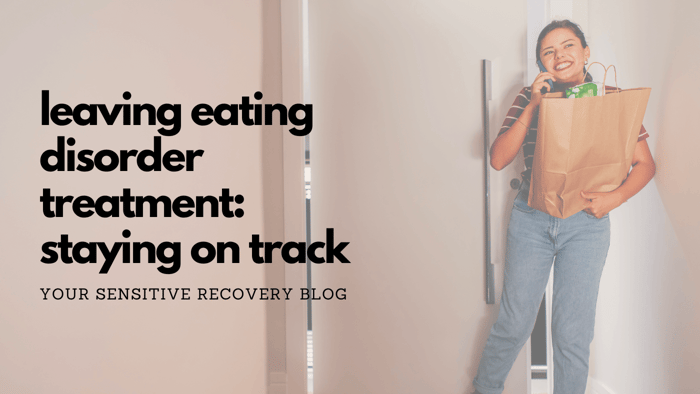Deciding to get help for an eating disorder can be so hard. Recovery is just plain difficult. It takes patience, brutal honesty, and the will to do the harder thing, day in and day out. If that weren’t enough, also needed is the ability to shut up that nagging, critical voice that tries to convince you that you’re just not sick enough to get help.
That was one of the bigger lies I had fallen for during the course of my own eating disorder. And as a result, it extended my suffering for several years.
Nowadays, as a therapist, I often hear my clients say that the fear of not being sick enough was one of the biggest barriers to seeking treatment sooner.
The truth is, not feeling “sick enough” or “deserving enough” of help is actually a classic symptom of a strong eating disorder.
It is evidence of the eating disorder’s bid for power over your life, and that you deserve and need to get help for the eating disorder.
Sometimes, these self-defeating thoughts are a handy excuse to stay sick. One of the most difficult parts of eating disorder recovery is facing the part of you that wants to keep your behaviors. There are very real, valid reasons why we do the things we do. In the therapy world, we call these “secondary gains.”
Your eating disorder might protect you from the risks of intimacy. Perhaps it allows you to hide from the challenges of adulthood, or maybe it feels like a safe way to express years of buried anger and hurt. These things must be considered during recovery.
You might be reading this now and thinking, “But what if I’m not the only one who thinks I’m not sick enough to get help for my eating disorder?"
I get it. I remember confiding in a friend one day that I was thinking about entering residential treatment. She asked, “Is that really necessary? Are you sure you need something that extreme?”
Boy oh boy. My eating disorder had a heyday with her response. See? Nobody thinks you need help. You’re too fat to actually have a problem. There are people way worse than you who need those beds.
Unfortunately, shocked, stunned loved ones can inadvertently perpetuate the “not sick enough” myth. It is so important to remember in instances like this that friends and family members are often reacting out of disbelief, fear, and a deep sense of helplessness.
So what do you do?
Well, as you might know, one of the most important parts of recovery is learning to challenge unhealthy, distorted thoughts. Eating disorders will try and rationalize the heck out of anything, and they’re good at it. So, you have to have your own arsenal of tactics up your sleeve.
Reflect on the following the next time your eating disorder tries to rationalize you out of the care that may end up saving your life.
- Visualize someone you care deeply about. What if they were struggling with an eating disorder and told you that they were not sick enough for treatment? How would you respond? My guess is you’d respond with concern and compassion. It may be hard to hear, but thinking that you are the exception is ego-driven, and simply false.
- Consider what comes before, “I’m not sick enough.” If you’re having that thought, then you are also having the thought, “Maybe I need treatment.” What is motivating the latter? Treatment isn’t fun so there is clearly something important prompting you to even entertain the idea of help. Is it worry over your health? Fear of losing a relationship? Or maybe just that you’re sick and tired of thinking about food and your body all the time.
- Take a look at your own secondary gains. What is your eating disorder doing for you? If you’re not sure how to answer that question, try asking yourself what you fear would happen if you no longer had your eating disorder. Has your eating disorder been making promises it hasn’t kept?
Recovering from my eating disorder was the hardest thing I ever did, and also the most rewarding. Don’t let a lie steal your life. Be brave. Reach out. Ask for help. You’re stronger than you know.
This blog post was originally written for RecoveryWarriors.com
✨ Josie Munroe, LMFT is a licensed therapist and owner of JosieMunroe.com and Your Sensitive Recovery As a recovered clinician and Highly Sensitive Person, she loves supporting others on their journeys to form new, empowered relationships with food, their bodies, and their sensitivity. Join the newsletter for a weekly boost of hope and inspiration. You deserve a recovery that works for you! ✨





